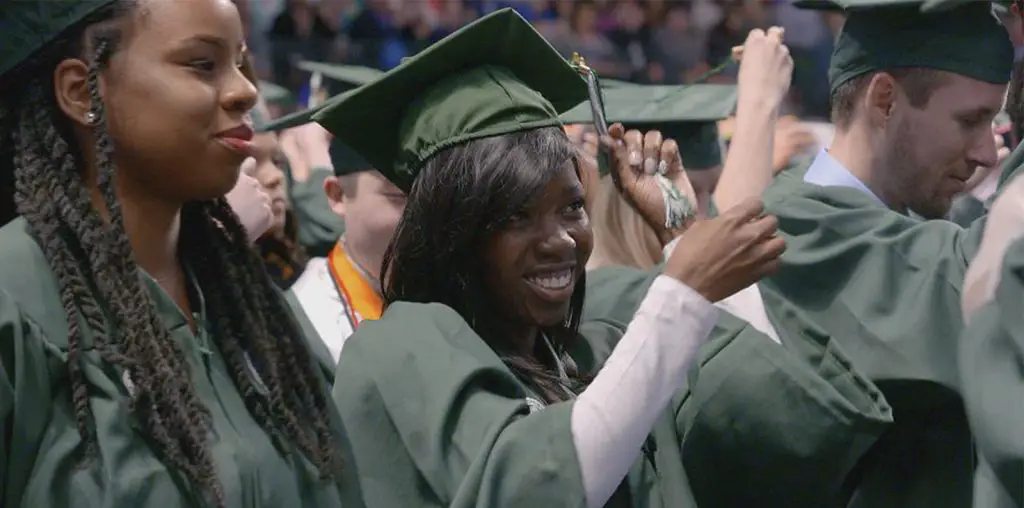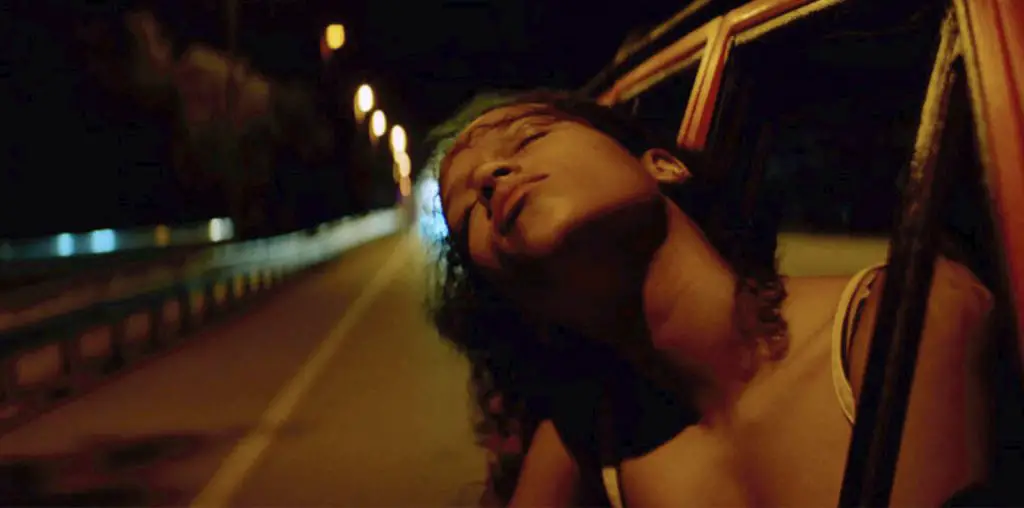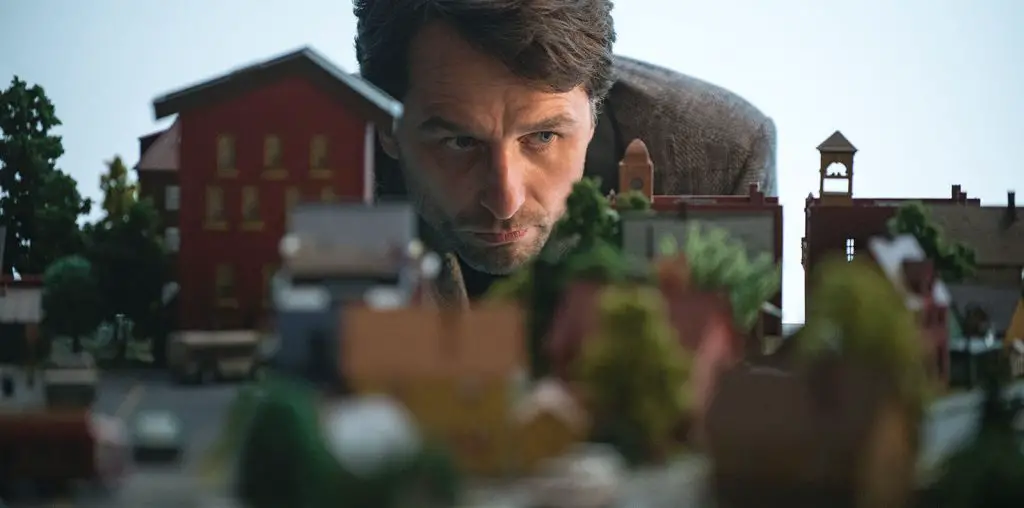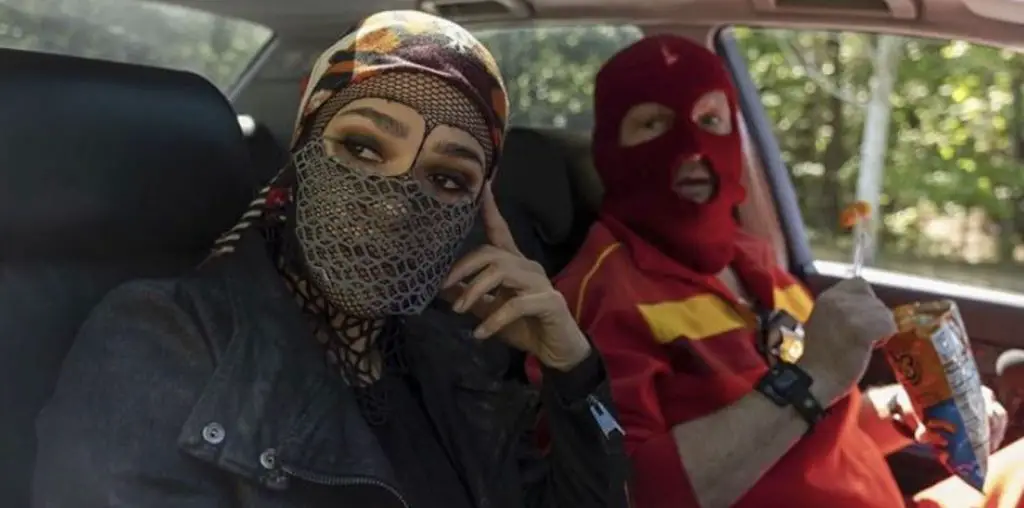
So Heidi embarks on a search to find her best friend. Jane’s husband’s nowhere to be found. Attempts to call in a missing person are futile. Heidi goes through Jane’s things, listens to her music, becomes her for a while. A man tells Heidi that Jane’s with the “boss” who “lives by the mines,” a “big guy that talks kind of funny.” She bumps into Gus (Blake Berris), who wears Jane’s necklace. “She’s in a better place,” Gus tells Heidi vaguely at a club, before giving her a liquid hallucinogenic and taking her to that better place.
“There are two types of people in this world: those who are lost and powerless, and those who found their place and their power. Which one are you?” Ren, the leader of a cult Heidi discovers, asks her, spelling out the film’s central theme, that of the eternal power struggle between the victim and the oppressor, the ones taking advantage and those who are being taken advantage of. McGuinness validly argues that this country provides one with a semblance of power, but it’s not real, it’s a fleeting illusion.
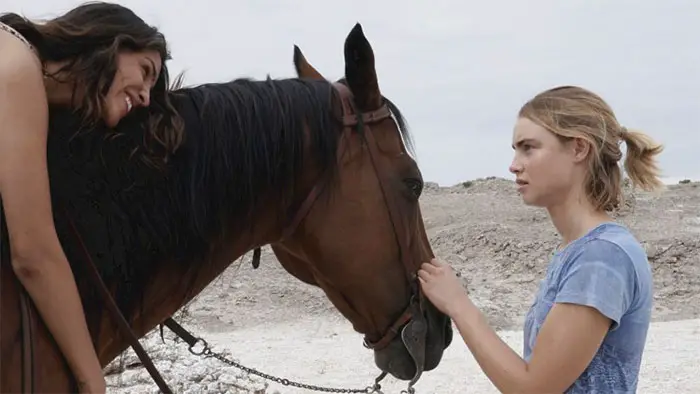
“McGuinness validly argues that this country provides one with a semblance of power, but it’s not real, it’s a fleeting illusion.”
The film sounds like a thrill-a-second ride, but it actually moves at a deliberate pace that verges on sluggish. It’s as if the filmmaker purposefully pumped the breaks whenever things got too wild. Some threads are not fully developed; I love Christian Camargo’s recovering alcoholic / cancer survivor Lyle, but what purpose does he serve, apart from reiterating the toxicity/imbecility of men? The sect part is also left underdeveloped. If those were all intentional choices, they are more frustrating than tantalizing.
By the way, I am only so harsh on McGuiness’ feature because it has so much potential. Little encounters resonate Jane’s “American Dream speech,” wherein she sheds a tear, sporting a cowboy hat and waxing poetic about how the “Dream has been taken away from [her]”; Lucy’s encounter with a gun shop owner who also happens to be a fortune teller… The lead performances sparkle: Eiza Gonzalez is a livewire, and Lucy Fry believably develops from inhibited to determined. Hartnett has fun in what amount to little more than a memorable extended cameo. Birds-eye-view shots of the desert bring to mind Sicario’s similar otherworldly depictions of the desert as a representation of the barren human soul.
She’s Missing is crammed with somewhat-forced truisms, such as, “Hurtful acts are the transference to others of the degradation that we bear on ourselves.” So yes, it may spell out its themes in big, bold letters, but some themes are worth spelling out, I guess. More importantly, McGuiness should trust her instincts and go for broke next time. That said, I’ll take a bold if misshapen curiosity such as this over safe Hollywood fare any day.
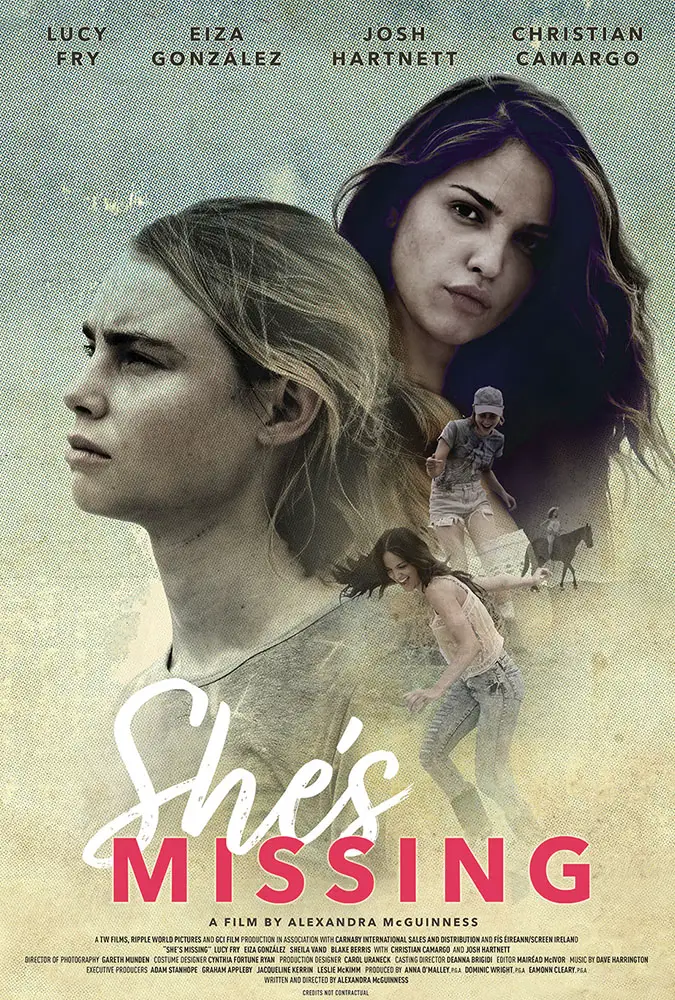
"…I’ll take a bold, if misshapen, curiosity such as this over safe Hollywood fare any day."
